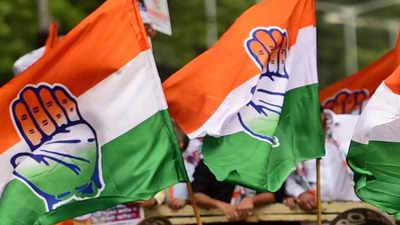In a recent development from New Delhi, the Congress party has disclosed its fourth roster encompassing 46 contenders for the forthcoming Lok Sabha elections. Notably, Ajay Rai, the Chief of Uttar Pradesh’s Congress division, has emerged as a contender for the third time in the Lok Sabha arena, challenging none other than Prime Minister Narendra Modi in Varanasi.
The inaugural list of candidates by the BJP, unveiled on March 2nd, encompassed a notable mention of PM Modi. The roster unfolds with Congress luminary and erstwhile Madhya Pradesh chief, Digvijay Singh, stepping into the electoral ring from the Rajgarh Lok Sabha constituency, opposing BJP’s Rodmal Nagar.
In a parallel development, Imran Masood, a former Member of the Uttar Pradesh Assembly, has thrown his hat into the ring for the Saharanpur Lok Sabha seat. Similarly, Virender Rawat is set to contest from Haridwar, while erstwhile Bahujan Samaj Party luminary Danish Ali has been fielded from the Amroha Lok Sabha constituency.
Recalling the 2019 Lok Sabha elections, PM Modi clinched the Varanasi constituency with a sweeping margin of 4.80 lakh votes, trouncing Shalini Yadav of the Samajwadi Party. Despite securing a modest 1,52,548 votes and finishing third in the race, Rai appears undeterred for the impending electoral fray.
Turning focus towards Tamil Nadu, the Congress party has named Karti Chidambaram, son of P Chidambaram, as its candidate for the Sivaganga Lok Sabha seat. Meanwhile, B Manickam Tagore, the incumbent MP from Virudhunagar, has secured renomination for the upcoming polls.
Shifting gears to Madhya Pradesh, the party has nominated Kantilal Bhuria for the Ratlam Lok Sabha constituency. Vikas Thakare is the party’s choice for the Nagpur Lok Sabha seat in Maharashtra. Additionally, Pradeep Jain Aditya will vie for the Jhansi seat, and Akhilesh Pratap Singh will contest from Deoria, both in Uttar Pradesh.
The list encompasses candidates hailing from diverse constituencies across Assam, Andaman and Nicobar Islands, Chhattisgarh, Madhya Pradesh, Maharashtra, Manipur, Mizoram, Rajasthan, Tamil Nadu, Uttar Pradesh, Uttarakhand, and West Bengal. Furthermore, the party has unveiled its initial roster of 18 contenders for the forthcoming Sikkim Assembly elections.
The electoral battle for the 543 Lok Sabha seats is scheduled across seven phases commencing on April 19th. An estimated 97 crore voters are poised to exercise their franchise in this pivotal democratic exercise, culminating on June 1st. The ballot counting is slated for June 4th.
Reflecting on the 2019 Lok Sabha polls, the Bharatiya Janta Party (BJP) clinched a resounding victory with 303 seats, whereas the Indian National Congress (INC) could only muster 52 seats. In the 2014 Lok Sabha elections, the BJP secured 282 seats, while the INC lagged far behind with a mere 44 seats.




